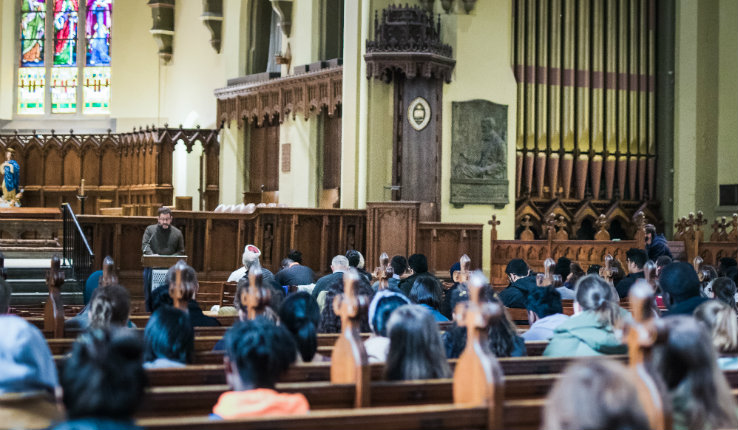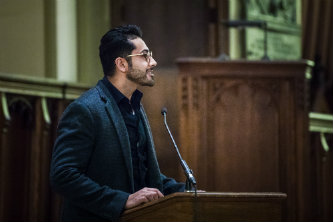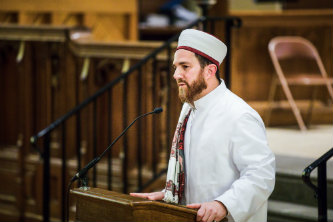About 150 members of the Lehigh community gathered Friday afternoon inside Packer Memorial Church for a campus vigil in solidarity with those suffering loss in the wake of the March 15 terrorist attacks on mosque worshippers in Christchurch, New Zealand.
The vigil, sponsored by the University Chaplain’s Office, featured two scheduled speakers – Lloyd Steffen, professor of Religion Studies and university chaplain and Rabbi Steven Nathan, director of Jewish Student Life – and six others, including current and former faculty, students and a community member. Walead Mossad, director of Muslim Student Life, saved his remarks for his sermon during the regular Friday Muslim service, which followed the vigil.
“I don’t want to be here today,” Nathan said. “None of us want to be here today. Too often we are gathered together to mourn the dead, to remember their lives. Too often we have gathered together to remember the lives that have been taken by violence in our world.”
He reminded attendees that vigil was the third one for mass shooting tragedies that had been held on campus since the beginning of the academic year. The first followed the mass shooting at the Tree of Life Pittsburgh synagogue in October 2018, just over a week later was the Thousand Oaks, Calif., shooting at a country-western bar frequented by college students and now one for the New Zealand mosque attacks.
“I wish I had a solution. I wish I had an answer,” he said. “But I don’t. All I know is that in the face of the horror of violence that leads to the reality of our world, we must also remember the love and passion and connection, that is, I believe the greater reality. Remembering this will help us as we do the difficult work of fighting hatred.”




